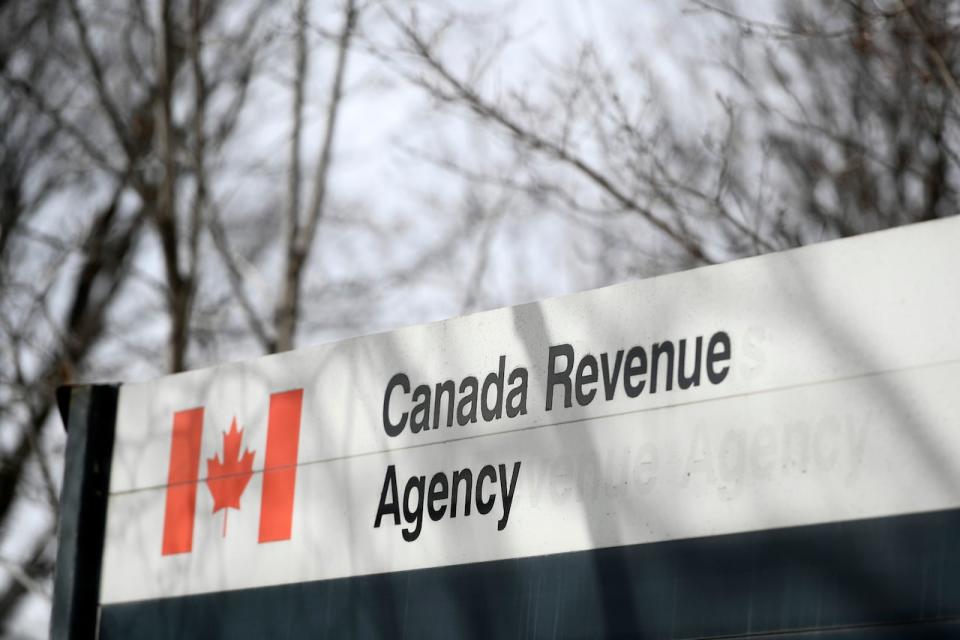


The federal government promised to “pilot a new automatic [tax] filing service” in 2024 to help get benefits to low- and fixed-income Canadians — but ended up recycling a program from the year before that saw little uptake.
Thousands of low-income Canadians are missing out on government benefits because they don’t file a tax return each year. The parliamentary budget officer (PBO) has estimated that an automatic filing system would result in the government paying out between $1.6 billion and $1.8 billion to individuals who are not receiving those benefits now.
In most cases, only people who owe taxes are required by law to file a return each year with the Canada Revenue Agency (CRA). Many people — notably those on government assistance — don’t expect to owe the federal government anything, so they seldom file.
The CRA announced earlier this year that it was expanding its SimpleFile program instead of piloting a new program. Through the SimpleFile program, the CRA mails invitations to a set number of low-income Canadians to call the tax agency and answer a short questionnaire in order to complete their tax returns.
When the CRA announced that expansion, it said that it would include paper and digital options “starting in summer 2024.”
Last month, CBC News asked the CRA how many Canadians used the “new” digital and paper SimpleFile options in 2024. The agency said it hadn’t finalized the numbers yet but pointed CBC News to a previous pilot from 2023 that offered digital and paper options under the SimpleFile program.
The agency said that in 2023, it invited 118,000 people to use the SimpleFile program. Of those, 35,000 filed their returns and the vast majority — 32,150 — filed through traditional methods rather than using the free SimpleFile service.
Only 260 people used the digital option and 350 used the paper option — less than two per cent of the invitees who filed.


The Canada Revenue Agency says only a few hundred people used the digital and paper SimpleFile program in 2023. (Justin Tang/The Canadian Press)
“The Canada Revenue Agency measures success as regardless of the filing method used,” a CRA spokesperson said in an email.
Elizabeth Mulholland is CEO of Prosper Canada, which works to give low-income Canadians access to programs and policies that help them improve their financial standing. She said she’s not surprised by the low uptake for the 2023 program.
“We know that many people with low incomes are afraid to open correspondence from CRA,” she said. “Their view is it’s generally bad news, so they try to avoid it.”
She said many low-income individuals assume that any good news claiming to come from the CRA has to be a scam.
Jennifer Robson, an associate professor in political management at Carleton University, suggested one solution to the low uptake would be to make free electronic tax filing an option on the CRA website for everyone — as the U.S. Internal Revenue Service has done.
A number of other countries, including the United Kingdom, Germany and New Zealand, have some form of automatic filing system for low- and fixed-income earners. Under the U.K. model, those with simple tax situations have their returns filed automatically but can correct any inaccuracies later.
Mulholland said that even with the expansion of the SimpleFile program, Canada is not close to having the same type of automatic systems seen in other countries.
“I think it’s good to have [the SimpleFile program] in the toolkit,” she said. “I don’t want to disparage the program, but I think it’s not enough to help the people that we’re really focused on, which is people with low incomes and simple tax returns who could really benefit from a truly automated service.”
46% of invitees sought help from private sector: PBO
The PBO found that 46 per cent of those who were invited to file through the SimpleFile phone system in 2023 turned to the private sector to file their returns — meaning they likely paid an accountant despite being eligible for a free government service.
Robson said leaving low-income earners to pay to file their returns when there is a free government service available undermines the objective of the program.
“If you’re standing back and thinking about this from the side of individual taxpayers, particularly those who are in lower and modest income, it’s definitely defeating the purpose,” she said.
The government said in its fall economic statement last month that it is developing legislation to set up an automatic filing system. Both Mulholland and Robson said they believe the CRA will eventually get there, but it might still take some time.
“I’m not saying that this is a simple file to resolve, but I am saying that I think the progress on this has been fairly slow and quite modest,” Robson said.